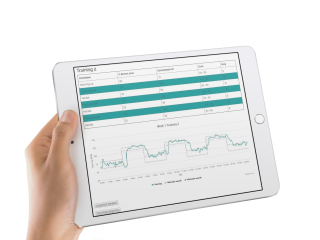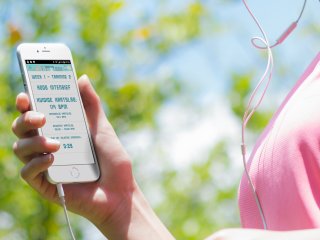Ongoing research projects
B-FIT International
There are several research projects ongoing to learn more about the effictiveness and feasibility of the B-FIT training guide on a larger international scale.
The goal of a by Postpolio Health Internatinal (PHI) financed research project was to translate the B-FIT training guide from the Dutch into the English language, and to test its implementation in a multicenter study. The project was in collaboration with a partner in the United States. Ten participants living with post-polio syndrome followed a 4-months exercise program according to the B-FIT training guide, supervised by physiotherapists of the Rehabiltiation Medicine department of Amsterdam UMC. Due to the COVID-19 pandemic, we did not (yet) succeed in recruiting the required 20 participants in the US.
In 2 other projects, with a similar design, we will evaluate the effictiveness and feasibility of the B-FIT training guide in France and Canada. The training guide will be translated into the French language. Then, a multicenter study will be conducted with 3 collaborating partners in France, and 3 partners in Canada. A total of 65 participants with different NMD, including Charcot-Marie-Tooth disease and oculopharyngeal muscular dystrophy, will be recruited. The projects are financed by the French muscular dystrophy association (AFM-Téléthon) and Muscular Dystrophy Canada.
I'M FINE
The I'M FINE study (IMproving FItness in NEuromuscular diseases) will provide evidence regarding the efficacy of a combined personalized aerobic exercise and coaching program for improving physical fitness on the short- and long term, of people with different NMD, in comparison to usual care. This randomized controlled trial includes 91 participants with different slowly progressive NMD. It is organized in collaboration with other university hospitals and rehabilitation centers in the Netherlands, and the project is financed by the Prinses Beatrix Spierfonds.
SMARTER
Personalized intensity zones of the B-FIT exercise program are prescribed based on exercise testing results. More specifically by using the first ventilatory threshold. This requires expensive respiratory gas analysis equipment to which most health care professionals do not have access. The aim of the SMARTER study (SubMaximal exercise testing to assess the AnaeRobic Threshold in nEuromusculaR diseases) is to develop an easily applicable exercise test, specifically designed for NMD and not requiring the use of respiratory gas analysis equipment, to indirectly assess the first ventilatory threshold. The project is financed by Amsterdam Movement Sciences, and we recruited 51 participants with different NMD.
Completed research projects
Usability study ReVi
We developed the 'Keep on training with ReVi' (ReVi) mHealth app, to support patients during their home-based training program according to B-FIT. The ReVi app provides real-time feedback on reaching target intensity zones, and it enables monitoring via an online dashboard and collection of training data, including heart rate and ratings of perceived exertion. A usability study in 3 university hospitals and 2 rehabilitation centers, including 29 patients with 11 different NMD and 10 physiotherapists, demonstrated high usability of the ReVi app, despite technical issues. Further development is needed before upscaling implementation of this promising tool. The project proposal for development of the ReVi app was winner of the Ipsen award for Innovative Patientcare in Rehabilitation.
 Impression of the ReVi app
Impression of the ReVi app

Pilot study B-FIT
We conducted a pilot study in 2 university hospitals, including 31 patients with 15 different NMD and 5 physiotherapists, to evaluate the feasibility and preliminary effectiveness of the B-FIT exercise program. Twenty-six patients (84%) completed program and they followed more than 75% of the possible training sessions. Based on exercise testing results, there were clear signs that the the exercise program has potential for improving physical fitness. However, there was no control group, and therefore it was not possible to draw definite conclusions. This requires a randomized controlled trial. Patients and physiotherapists were satisfied with the use of the B-FIT training guide.
FACTS-2-NMD
The FACTS-2-NMD study (Fitness And Cognitive behavioral TherapieS for Fatigue and ACTivitieS in NeuroMuscular Diseases) was conducted between 2008 and 2016 by a large nationwide consortium, including several universities, hospitals and rehabilitation centers in the Netherlands. The aim was to reduce fatigue and improve physical functioning of people living with NMD. The project included 3 randomized controlled trials in facioscapulohumeral muscular dystrophy, post-polio syndrome and amyotrofic lateral sclerosis. In total, there were 182 patients recruited. Patients were randomized to aerobic exercise, cognitive behavioral therapy, or usual care. Results of the FACTS-2-NMD study were an important basis for development of the B-FIT training guide.
Publications
- Veneman T, Koopman FS, Oorschot S, Koomen PG, Nollet F, Voorn EL. Usability of a mobile health application to support home-based aerobic exercise in neuromuscular diseases. JMIR Preprints. 12/06/2023:49808.
- Voorn EL, Koopman FS, Nollet F, Brehm MA. Individualized Aerobic Exercise in Neuromuscular Diseases: A Pilot Study on the Feasibility and Preliminary Effectiveness to Improve Physical Fitness. Physical Therapy. 2021; 101, pzaa213.
- Oorschot S, Brehm MA, van Groenestijn AC, Koopman FS, Verhamme C, Eftimov F, Jelsma, JGM, Jorstadt HT, Nollet F, Voorn EL. Efficacy of a physical activity programme combining individualized aerobic exercise and coaching to improve physical fitness in neuromuscular diseases (I’M FINE): study protocol of a randomized controlled trial. BMC neur. 2020; 20, 1-10.
Partners
(Rehabilitation)centers The Netherlands
- UMC Utrecht
- Merem
- Klimmendaal
- Sint Maartenskliniek
- Basalt
- Reade
(Rehabilitation)centers abroad
B-FIT Canada
- Université du Québec à Chicoutimi, Saguenay, Québec
- Université Laval, Department of Rehabilitation, Québec City, Québec
- Université de Sherbrooke, Québec
B-FIT France
- Centre Universitaire Hospitalier de Reims, Reims
- Hôpital Raymond Poincaré, Garches
- Centre Hospitalier Universitaire de Lille, Lille
B-FIT United States
- Texas Woman's University, Houston
